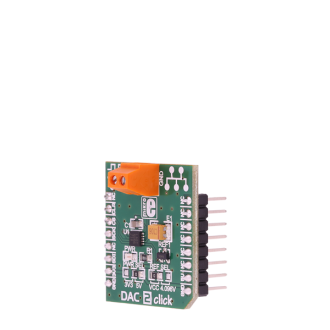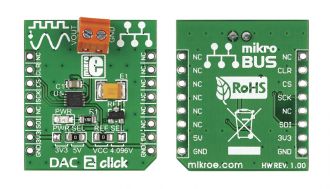
We strongly encourage users to use Package manager for sharing their code on Libstock website, because it boosts your efficiency and leaves the end user with no room for error. [more info]

Rating:
Author: MIKROE
Last Updated: 2018-07-31
Package Version: 1.0.0.1
mikroSDK Library: 1.0.0.0
Category: DAC
Downloaded: 6429 times
Followed by: 4 users
License: MIT license
DAC 2 click carries LTC2601CDD, a 16-bit digital-to-analog converter, along with voltage output screw terminals.The click board communicates with the target MCU through the mikroBUS SPI interface (MISO, MOSI pins) with clock rates up to 50MHz.
Do you want to subscribe in order to receive notifications regarding "DAC 2 Click" changes.
Do you want to unsubscribe in order to stop receiving notifications regarding "DAC 2 Click" changes.
Do you want to report abuse regarding "DAC 2 Click".

